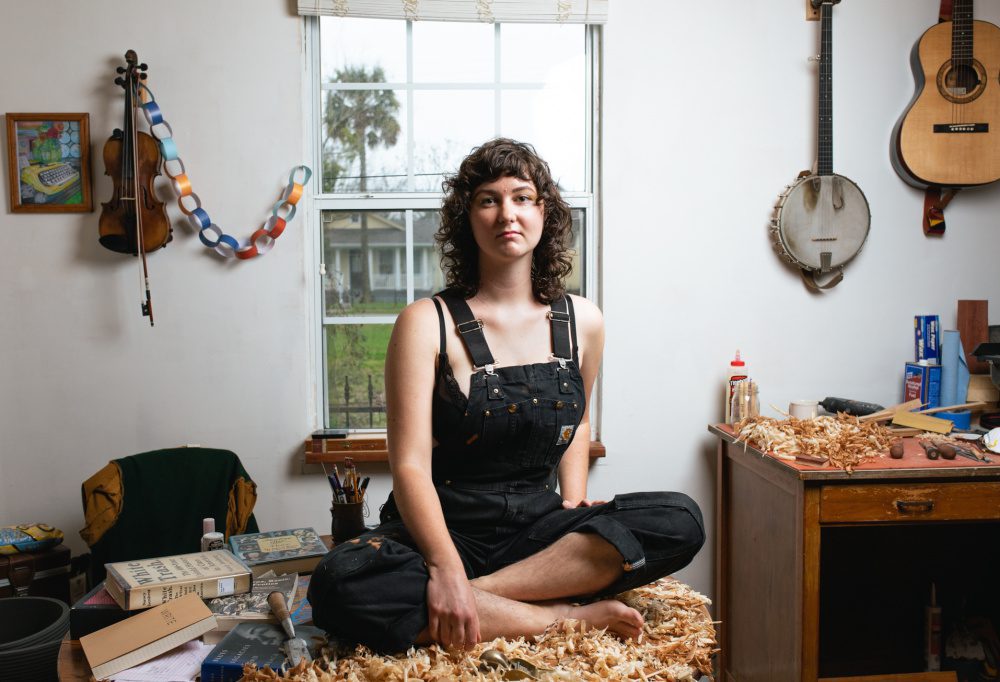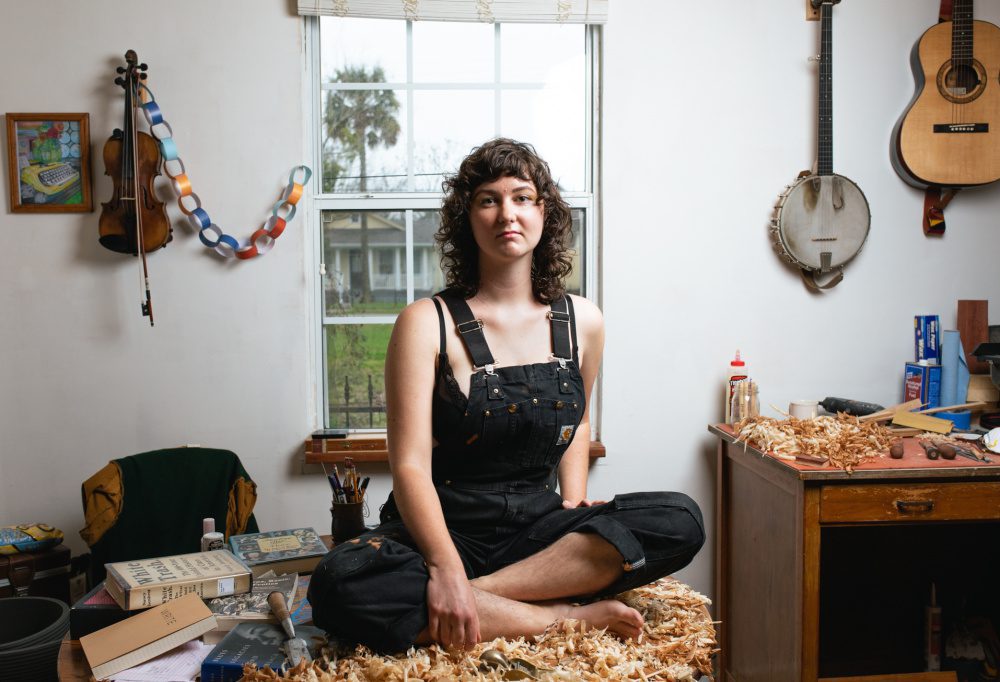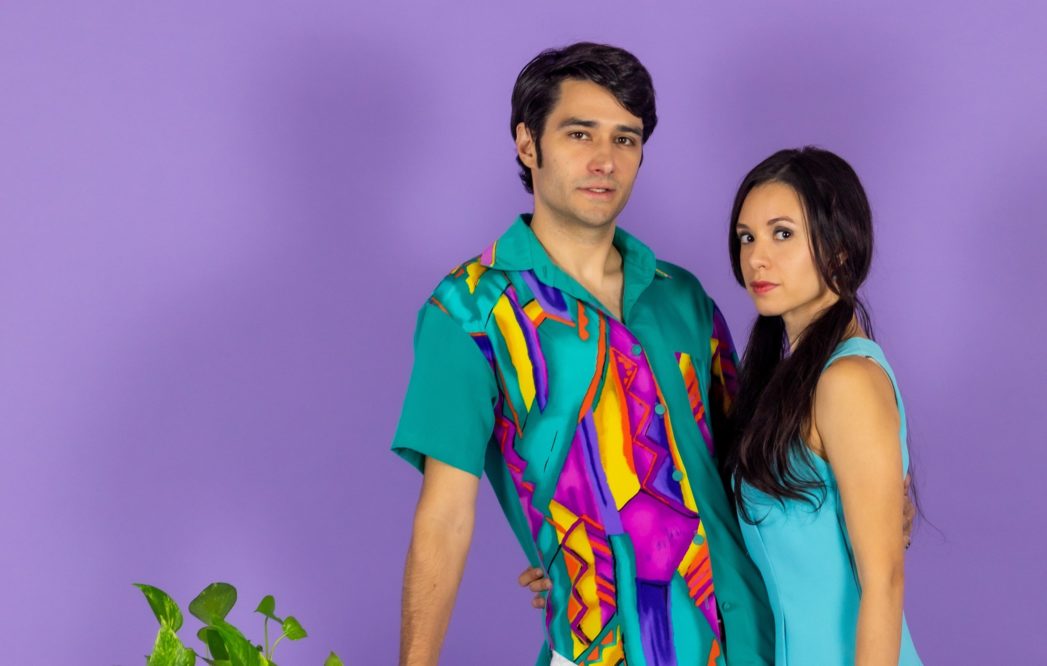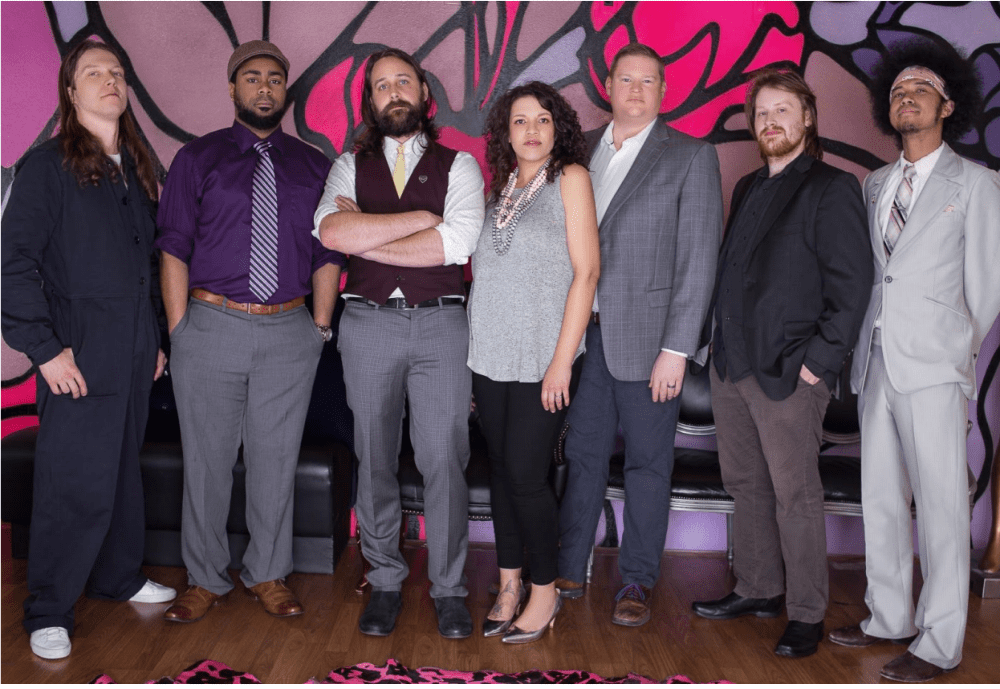

In music, the unequal representation of women is an industry-wide issue with a lasting ripple effect. There’s no sector of the industry with a more pronounced gender gap than in engineering and producing. According to reports by the Audio Engineering Society, women make up just 5% to 7% of audio engineers and producers. Organizations like Women’s Audio Mission, report that the number is probably even lower.
Rampant sexism is the cause—and the effect— of such poor representation on the tech and production side of music. Most women don’t even get into sound engineering because it’s so male-dominated, which then perpetuates the inequity. If a woman does manage to survive school and become sound engineer or producer, they can then expect to be continually mistaken for something other than the engineer (usually the singer or a roadie) and to have their engineering or producing abilities consistently questioned and ridiculed.
This dejecting reality is one that Washington-bred queer roots artist McKain Lakey knows well, both a graduate of Berklee School of Music’s mostly-male audio engineering program and as a live sound engineer who’s toured with bands. In fact, it was the unsavory experiences she had as an audio engineer that inspired her new single, “Decibel Jezebel,” which she premieres with Audiofemme today in anticipation of her upcoming debut full-length album, Somewhere, out May 14, 2021.
“Decibel Jezebel” begins with what Lakey calls “audio nerd jokes” and then dives into a biting criticism of the sexual objectification and under-appreciation she experienced as an engineer.
“You’ll notice the difference if I increase by three/My voice doubles at ten – if I do that again, will you stop stifling me?” Lakey sings. “That decibel jezebel, she couldn’t possibly hear in those jeans/But you can’t scare me straight cuz I know that no one listens linearly.”
Though the song is specifically addressing what she experienced as a femme audio engineer, Lakey also found it grew into a larger commentary of “women and non cis-dudes in the service industry being in this position of having to conform to ways of being in the world that are placed upon us rather than being given the agency to present as we want to and as we are. [It] morphed into a commentary on the patriarchy.”
In service of the broader relatability of sexism in music, Lakey invites her close friend, saxophonist Jane Covert-Bowlds, to appear on “Decibel Jezebel.” Covert-Bowlds performs a goose-bump-giving solo that exudes solidarity and sisterhood and exhibits her command of an instrument that is been typically associated with men.
“Jane was someone – we connect as friends, but I knew she had a really special take on that song as an [woman] instrumentalist and I really wanted to feature her,” says Lakey. “I knew specifically that I wanted Jane to play on it because we have talked a lot about experiences being queer women musicians and what that looks like and the struggles that go along with [our] identity.”
With Somewhere, Lakey also contributes to the growing visibility of queer-identifying artists in country music, a genre that is typically associated with two forces that typically harm, hinder, and exclude queer folks—conservative politics and rural America. But, as Lakey, who grew up just north of Seattle in the rural town of Bow, Washington, points out, that’s not the entire history of roots and country music.
“The more that I learn and go back and research the beginnings of country music and the class and racial history of country music and roots music in general in the United States, the more I think there was this turning point in the history of recorded music where all of a sudden music went from being something you played in your living room to being something that was sold and marketed to specific audiences,” says Lakey. “That was the point at which country music… created these lines. When in fact, there are many amazing, radical, queer, Black blues singers from like the ’20s and ’30s. You know, I think about the history of music in the US and think like, actually, queerness has a place in this and always has had a place in this. This isn’t so much a radical new thing. This is just saying, ‘We’re here. We’ve always been here. And it would be nice to be seen for who we are.'”
In that way, Lakey highlights and subverts forces in society that work to suppress her identity, purely by sharing vulnerable, arresting stories from her life as a queer person on Somewhere.
“I have benefitted a lot from the privilege of being a white person, a straight-passing, cis-passing person, and have not had to bear the weight of mistreatment that so many of my LGBTQ+ siblings have. But I did spend a long time feeling unsettled and unseen,” says Lakey. “And it feels important to me to represent queerness as something that has as many expressions as there are queer people, and that queerness is about your relationship with yourself, not about who you have sex with or how others define you.”
There is perhaps no song on the album that does the latter better than “Queer AF,” Lakey’s take on classic country twang with a rainbow twist. With the bold chorus—”Queer as fuck and cute as fuck,”—Lakey highlights queer love in the face of persistent anti-LGBTQ sentiment.
The song was written during Lakey’s time in Mountain View, Arkansas, where she lived above a music store and taught old time music to kids from 2018 until the fall of 2020. Since then, Lakey’s hit the road and stopped in Seattle—where she recorded the new record at Seattle’s Crackle & Pop! Studio—New Orleans, and now, Indianapolis. Lakey’s travels lend her lyrics a searching quality and put a variety of sonic tools, from old time banjo to the Seattle rock grit, in her toolbox. She draws on each with creativity and ease, following her philosophy about roots music.
“I’m definitely simplifying this narrative, but the history of roots music in the US is very diverse and represents a lot of different people bringing a lot of different things to the table and referencing each other and learning from each other,” she says. “I feel like for me it’s not so much being radical as it is saying, like, hey actually let’s look back at the history of this music and be true to what the history of this music is, which is representing working-class people of all different backgrounds.”
Lakey says her travels also contributed to her landing on the title Somewhere, which was produced Johnny Sangster (Mudhoney, The Posies, Neko Case) and features a cast of Seattle mainstay artists like fiddler Annie Ford, guitarist Bill Patton and bassist Aaron Harmonson. “[Somewhere] is about searching for home. [I’m wondering] what is home? What is the culture of this country? It’s all these different things that I’ve been learning and digging into that hopefully translate to this…idea of where are we going? Oh, somewhere.”
But even as she wonders where she’s going, Lakey is clearly someone who knows who she is and what she has to say in her music. “Decibel Jezebel”—with its fierce self-possession and dismissal of those who’ve underestimated her—is proof of that, as is the rest of her brave forthcoming album.
Follow McKain Lakey on Facebook and Instagram for ongoing updates.




